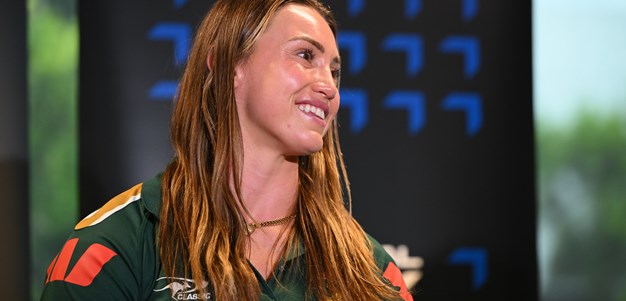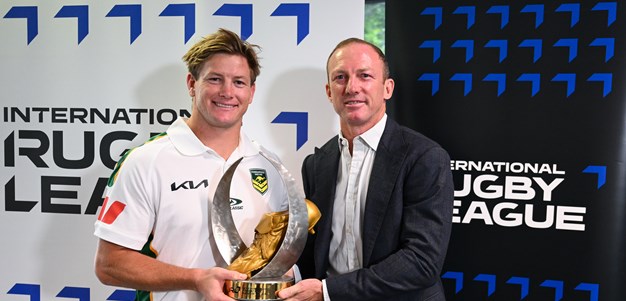
For rugby league players, the game is a huge part of their lives. When it comes time to hang up the boots, it's often hard to adjust.
Cue Queensland Rugby League wellbeing operations manager Dayne Weston and NRL wellbeing and education programs manager David Solomona.
The duo are passionate about keeping players connected to the game well after they've run out for the final time, and making sure the transition to "life after footy" is as smooth as possible.
A recent transition workshop, which ran on Intrust Super Cup grand final weekend, recognised the contribution of retiring Cup players and their partners, celebrated their time in the game and equipped them for life after football.
"Obviously, with the NRL, you're transitioning into the real world, where these players, it's more like they know the real world - they've been doing it... it's more so 'what are you doing without rugby league now?'" Weston said.

"There might be a few of them that play local footy. It's not the same. You know, aside from the NRL, this is as professional as it gets. You can play local footy and not turn up to training.
"The aim of the workshop was to give them some tools, get them to openly talk about what they think they're going to struggle with and get them talking about things they wouldn't normally talk about. It was really good."
Weston, who spent time in the NRL and Cup, said he was able to share his experiences and relate to what the players were going through.
For one activity, Solomona and wife Utu took players Martin Cordwell, Taylor Brown, Wes Conlon and their partners, as well as Rogan Dean and Kody House, through the 'love languages'.

"It's a great tool for anyone, but especially in this transition, because like Utu said, initially when Dave first retired and was around more than he was in the past, she took a while to adjust to it, and at times struggled with him being around so much... that gave everyone a laugh," Weston said.
"But it's kind of true in a way when you get used to a routine, that’s why it’s important to have the partners involved in the transition workshop."
Weston said there was "a lot of discussion" about the future, possible challenges and life in general.
"I know my role is to look after community rugby league, and that's what I do, but it doesn't stop because you've retired," Weston said.

“I know a lot of this stuff isn’t publicised, but we are hoping after each year, the players and their partners involved in the workshop can share their positive experiences."
Weston said he would look to organise semi-regular events throughout the year for the group to stay connected.
"It's all about getting together and staying connected," Weston said.
"I feel the biggest thing, and it's gotten better over time, is further educating people that rugby league is only a small part of their lives. There is a bigger picture. To help those who struggle with it... I know, myself, I did. I really struggled with it and I know so many people who have.
"I know a lot of people will struggle but if they've got the tools and resources... they might be hurting inside but deep down they can overcome it because they've got good things in place, they've already built strong habits. But it's more so staying connected to help.
"For those who want to stay connected to the game, it's about upskilling them and helping build capacity to stay involved.
"At the end of the day, we don't want anyone to feel neglected because they don't play rugby league. We have to appreciate they've put a lot into this game. And not, because they've hung their boots up, wipe our hands of them.
"I feel like that's important."




